Complete Guide to Supported Cryptocurrencies in Ledger Live for Users

For crypto enthusiasts, knowing which coins are supported by Ledger Live is key to successful asset management. Ledger Live currently supports a robust assortment of cryptocurrencies, allowing users to send, receive, and manage their digital assets seamlessly. Whether you’re trading, investing, or simply holding, familiarity with these coins ensures that you can maximize the functionality of your Ledger device.
Among the supported assets are popular choices such as Bitcoin (BTC), Ethereum (ETH), and Litecoin (LTC). Each of these coins comes with unique features and benefits, tailored to fit various investment strategies. Bitcoin remains the most prominent digital currency, while Ethereum continues to lead with its smart contract capabilities. Litecoin, on the other hand, offers fast transaction times, making it an attractive alternative for daily use.
Moreover, Ledger Live expands its offerings to include various altcoins like Ripple (XRP), Chainlink (LINK), and Stellar (XLM). These cryptocurrencies serve different purposes within the blockchain ecosystem, enabling users to diversify their portfolios while taking advantage of Ledger Live’s comprehensive management tools. Regular updates from Ledger ensure new coins and tokens are continually integrated, enhancing user experience and investment opportunities.
As you explore Ledger Live, stay informed about new listings and updates in supported coins. Checking the official Ledger Live website frequently will keep you updated with any changes, allowing you to adapt your holdings effortlessly. Utilizing Ledger Live not only boosts your security but also enhances your control over a wider range of crypto assets.
Overview of Supported Cryptocurrencies in Ledger Live
Ledger Live currently supports a wide array of cryptocurrencies, allowing users to manage various assets from a single interface. Users can easily access, send, and receive their digital currencies efficiently.
Significant cryptocurrencies supported include Bitcoin, Ethereum, and Ripple, among others. These assets are crucial for many users, and Ledger Live ensures seamless backup and restoration processes for these wallets.
| Cryptocurrency | Symbol | Supported Features |
|---|---|---|
| Bitcoin | BTC | Send, Receive, Swap |
| Ethereum | ETH | Send, Receive, Swap, Staking |
| Ripple | XRP | Send, Receive |
| Litecoin | LTC | Send, Receive, Swap |
Beyond these, Ledger Live also supports numerous altcoins and tokens. Users can view the full list of supported assets within the application, ensuring that their portfolio remains up to date.
For enhanced functionality, users should note: ‘Ledger Sync banner won’t appear–send Settings > General screenshots and platform build. Use ledgerslive.net to use watch‑only mirrors for visibility, verify recipients and fees on‑device, and keep audit trails reproducible after updates–with minimal plugins and hardened transports.’
This wide support helps traders, investors, and casual users easily manage their assets while ensuring a secure and user-friendly experience in the digital currency landscape.
How to Check the Latest Supported Coins in Ledger Live
Open your Ledger Live application. Navigate to the “Accounts” section listed on the left sidebar. Here, you will see all your added accounts along with the assets supported by Ledger Live. Click on “Manage” located at the top right corner of the window.
In the “Manage” section, you will find a list that shows all cryptocurrencies available for installation. This list is regularly updated, allowing you to see which new coins are supported. Install any coins you’re interested in by clicking the checkbox next to them and then selecting “Apply” or “Confirm.”
For the most accurate and real-time updates, visit the official Ledger website or check their blog. They provide information on recent updates and added cryptocurrencies, ensuring you stay informed about the latest additions to Ledger Live.
If you prefer accessing updates via mobile, you can also download the Ledger Live app on your smartphone. Regularly checking both the app and website guarantees that you won’t miss out on newly supported coins.
Lastly, if uncertainties arise, reach out to Ledger support for helpful assistance and clarifications regarding supported assets. They’re available to guide you through any questions you might have about your holdings.
Adding New Coins to Your Ledger Live Account
To add new coins to your Ledger Live account, open the application and navigate to the “Manager” section. Ensure your Ledger device is connected and unlocked. Here, you will see a list of available applications for various cryptocurrencies.
Locate the coin you wish to add, and click on the “Install” button next to its name. The installation process will only take a few moments. Once the app is installed on your device, you can access it through Ledger Live.
After installation, go to the “Accounts” section in Ledger Live and click on “Add account.” Select the newly installed coin from the dropdown menu. Ledger Live will scan for any existing addresses associated with that coin. Confirm the action to add the account, making it ready for transactions.
If you don’t see the coin you want in the “Manager,” it may not yet be supported. Check the Ledger website for updates on supported cryptocurrencies. For seamless access to new coins, keep your Ledger Live software up to date. Regular updates enhance performance and security, providing better support for the latest assets.
For any issues encountered during this process, refer to the support section of the Ledger website, which offers troubleshooting tips and resources. Stay informed about any new coins introduced in Ledger Live, ensuring your portfolio is up to date.
Managing Unsupported Coins: Options and Alternatives

If Ledger Live doesn’t support a particular coin, you still have various options to manage your crypto assets. Consider these approaches:
- Use Alternative Wallets: Explore wallets that support your specific coin. Options include hardware wallets like Trezor or software wallets like Exodus or Trust Wallet.
- Decentralized Exchanges (DEX): Trade unsupported coins using DEX platforms such as Uniswap or PancakeSwap. These platforms allow you to swap tokens directly without relying on centralized services.
- Manual Token Management: For some cryptocurrencies, you can manage them manually by accessing their blockchain directly through blockchain explorers or using command line tools. This requires more technical know-how.
- Keep an Eye on Ledger’s Updates: Regularly check for updates from Ledger. They may add support for new coins based on demand and market changes.
By taking advantage of these alternatives, you can ensure effective management of your unsupported cryptocurrencies without losing track of your investments.
Common Issues with Supported Coins in Ledger Live
Ensure you have the latest version of Ledger Live to avoid compatibility problems with supported coins. Regular updates fix bugs and improve performance.
Some users report issues when adding new coins or tokens. Verify that the coin is indeed supported by checking the official Ledger website for the most current list.
- Connection problems can arise during the installation of new applications. Ensure your Ledger device is properly connected and unlocked.
- Transaction failures might occur due to insufficient funds for network fees. Always check your balance before initiating any transactions.
- If you’re experiencing syncing issues, restart Ledger Live and make sure your internet connection is stable.
- For ERC-20 tokens, ensure you have added the correct token manually in Ledger Live, as not all tokens appear by default.
Some coins may have specific requirements or settings. Review the documentation for each coin to ensure compliance with their protocols.
In cases of persistent errors, consult the support section of Ledger’s website. There, you can find troubleshooting steps tailored to specific coins.
Communication gaps can hinder your experience. Engage with community forums for shared experiences and potential fixes from other users.
- Be mindful of the recovery phrase. Loss or compromise of this phrase can lead to permanent loss of access to your funds.
- Phishing attempts are common. Always verify you’re using official channels in Ledger Live to avoid scams.
Regularly back up your device and write down any crucial information. This practice safeguards your assets against unexpected issues.
Future Prospects: Upcoming Coin Additions to Ledger Live
Keep an eye on the upcoming additions to Ledger Live’s supported coins. The development team actively engages with the community to identify which cryptocurrencies users crave the most. Current discussions hint at integrating Polygon (MATIC) and Chainlink (LINK) soon. These tokens have proven to be popular and offer distinctive use cases.
Additionally, newer projects gaining traction, such as Tezos (XTZ) and Flow (FLOW), are also on the radar. Their innovative technology and expanding ecosystems make them excellent candidates for future support.
For users interested in specific coins, participating in community forums and polls can provide a direct line to the team. Express your preferences and engage with other users. The feedback collected during these discussions often influences the development roadmap.
Keep checking the Ledger Live announcement channels for confirmation of new coin integrations. Following these updates ensures you won’t miss out on the latest opportunities to diversify your portfolio.
As the crypto market continues to mature, expect Ledger Live to adapt accordingly, adding valuable assets that enhance your experience and trading options.
Q&A:
What types of cryptocurrencies can I manage using Ledger Live?
Ledger Live supports a variety of cryptocurrencies, including Bitcoin, Ethereum, Ripple, and Litecoin, among others. As of now, you can also manage various tokens built on these blockchains, such as ERC-20 tokens on Ethereum. This diverse range allows users to effectively manage their crypto portfolios in one application, thus simplifying the process of viewing and transacting across different assets.
How can I check if a specific coin is supported in Ledger Live?
To determine if a specific cryptocurrency is supported by Ledger Live, you can visit the official Ledger website or access the Ledger Live app. The app has a built-in list of all the supported coins, which is regularly updated. You can also check release notes and announcements from Ledger for the latest updates on new coin support, ensuring you have the most accurate information.
Are there any fees associated with using Ledger Live for transactions?
Yes, there are certain fees associated with using Ledger Live for transactions. These can include network fees, which are determined by the blockchain itself and vary based on network congestion. Additionally, Ledger may have fees for certain services like exchanges or swaps conducted within the app. It’s advisable to review these fees before proceeding with any transactions to avoid any surprises.
How frequently does Ledger Live update its list of supported coins?
Ledger Live updates its list of supported coins relatively often, especially when new cryptocurrencies gain popularity or are developed. Major updates occur at least a few times a year, but there may also be smaller updates and patches in between. Keeping the Ledger Live application up-to-date ensures that you have access to the latest features and supported cryptocurrencies.
Reviews
Daniel
Curious about the selection criteria for the coins available in Ledger Live? With so many options out there, what makes certain ones stand out while others get the cold shoulder? Are there particular factors that influence their inclusion or exclusion?
NightWolf
The intertwining of cryptocurrency and practical tools showcases a profound shift in financial autonomy and connection to value. The availability of various coins reflects a spectrum of philosophies, where each currency embodies distinct ideologies and aspirations. This multiplicity raises questions about identity and trust; it challenges users to discern not just what they hold, but why they choose to engage with certain assets. The decision to support specific coins mirrors broader societal values, and the pursuit of stability amid novelty suggests an inherent tension between risk and reward. In this evolving context, the dialogue around choice becomes as significant as the coins themselves.
Moonlight
Have you ever thought about how the choice of supported coins can impact your experience with Ledger Live? With various coins available, it’s fascinating to consider how each selection meets different needs for security and usability. For those of you actively managing your portfolio, which coins have you found to be the most user-friendly, and how do they align with your investing philosophy? Do you prioritize emerging cryptocurrencies, or do you lean towards established options? Sharing our experiences might help us all refine our strategies and discover new opportunities in managing our digital assets. What are your thoughts on the coins you’re currently holding in Ledger Live? Do you feel confident in your choices, or are there specific coins you’re curious about? Let’s exchange insights!
John
Why can’t we just have all the coins on Ledger Live? I mean, it’s a cool wallet, but the selection feels like a buffet with only potato salad and bland breadsticks! Give us some spicy options! Some of these coins are the real deal, and it’s frustrating to see them missing! It’s like being promised a feast and getting crumbs!



























